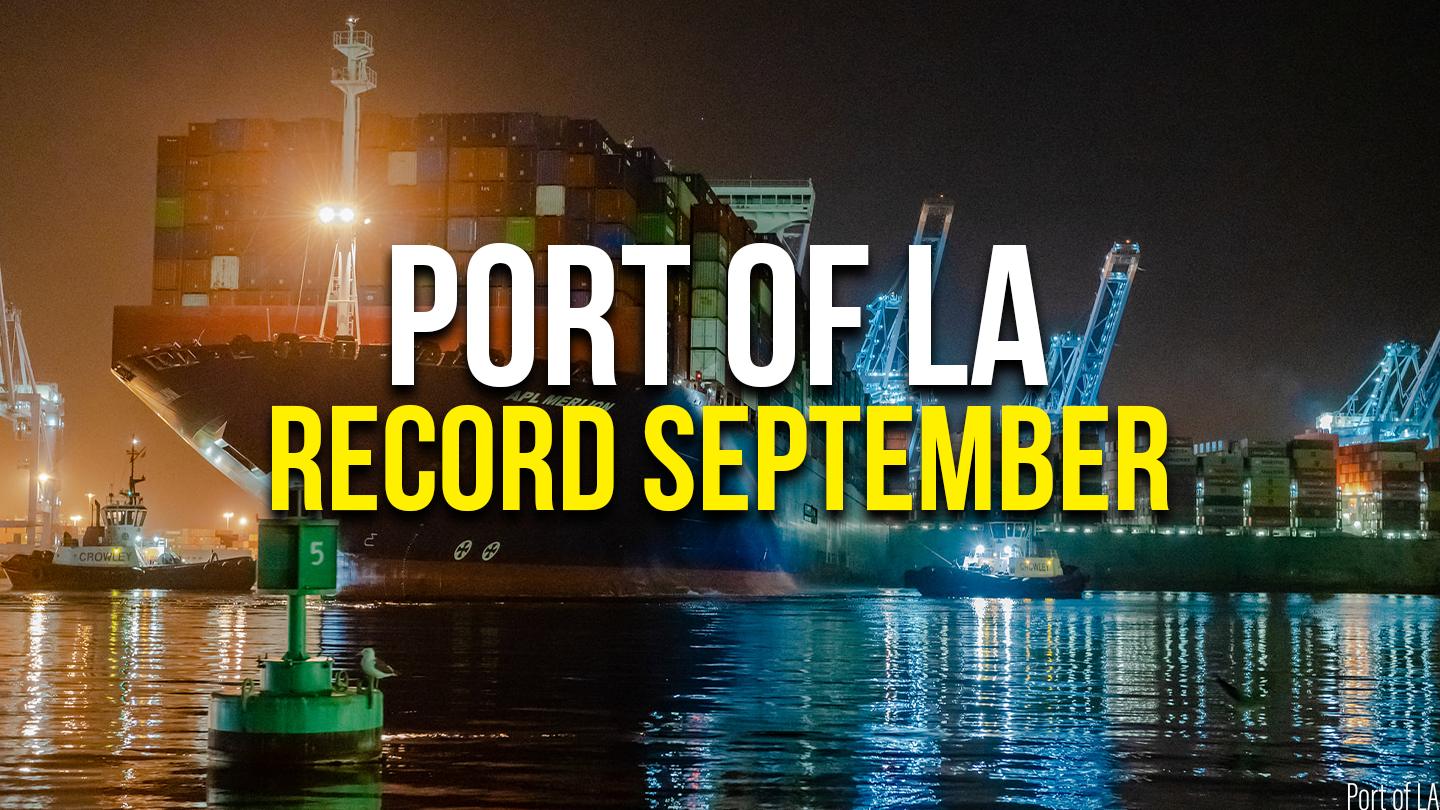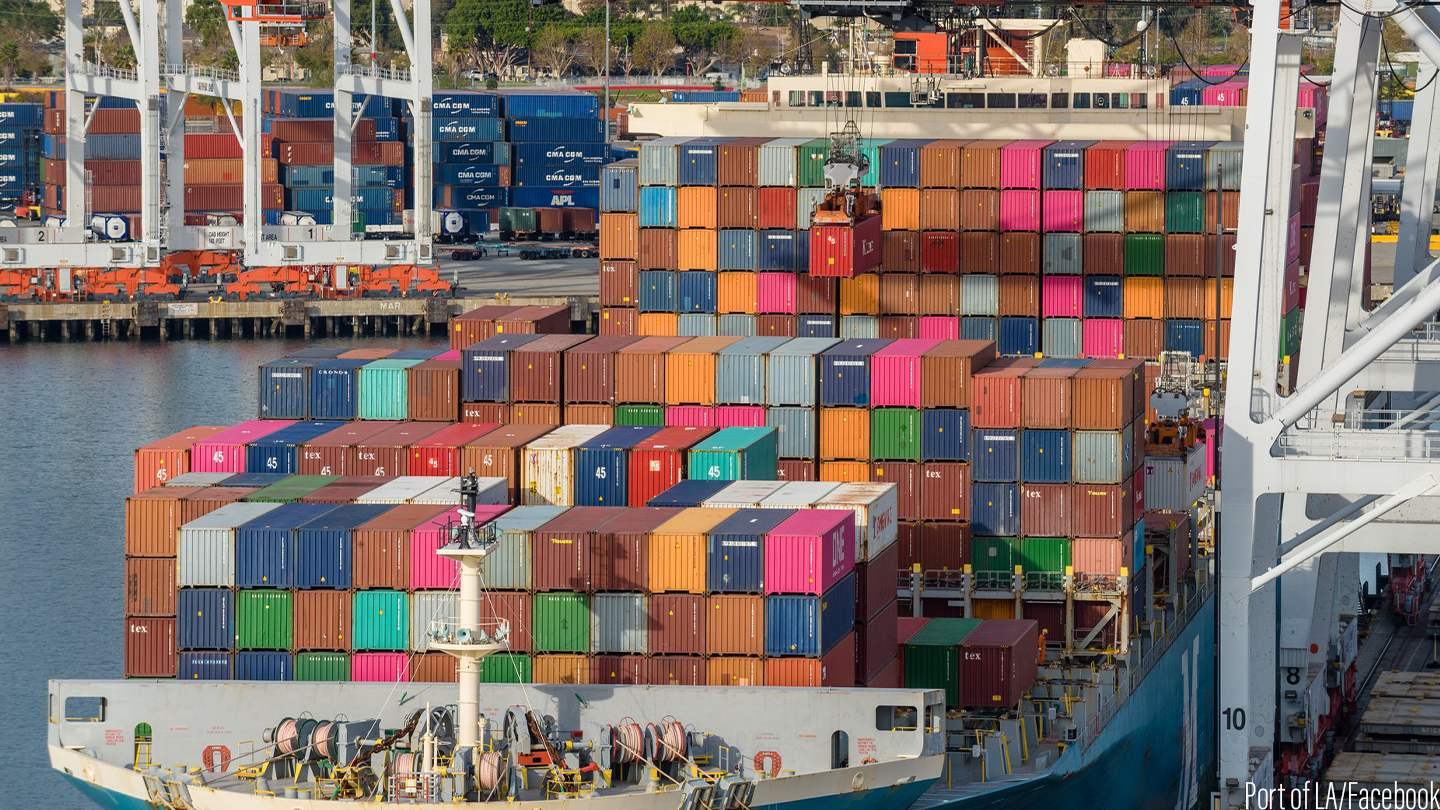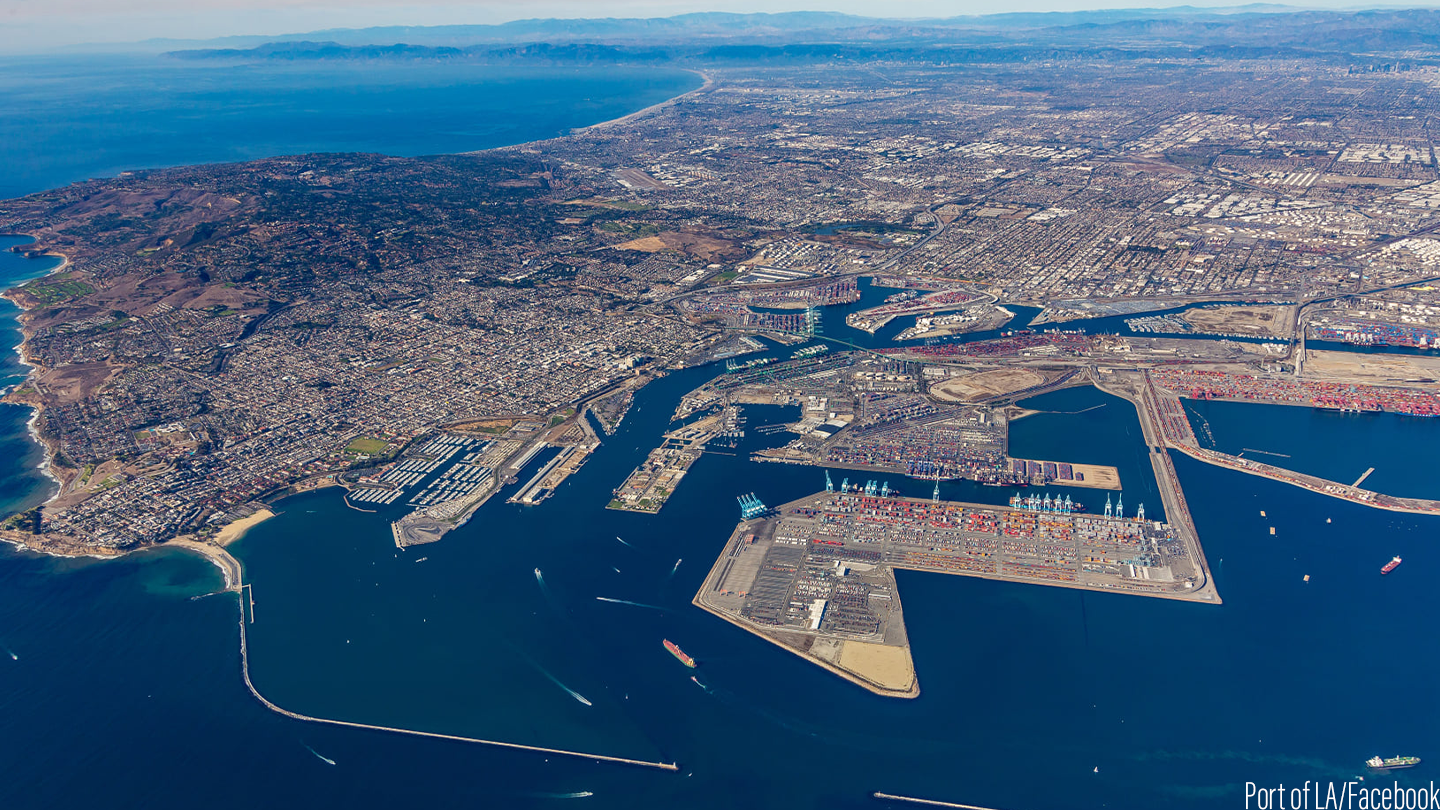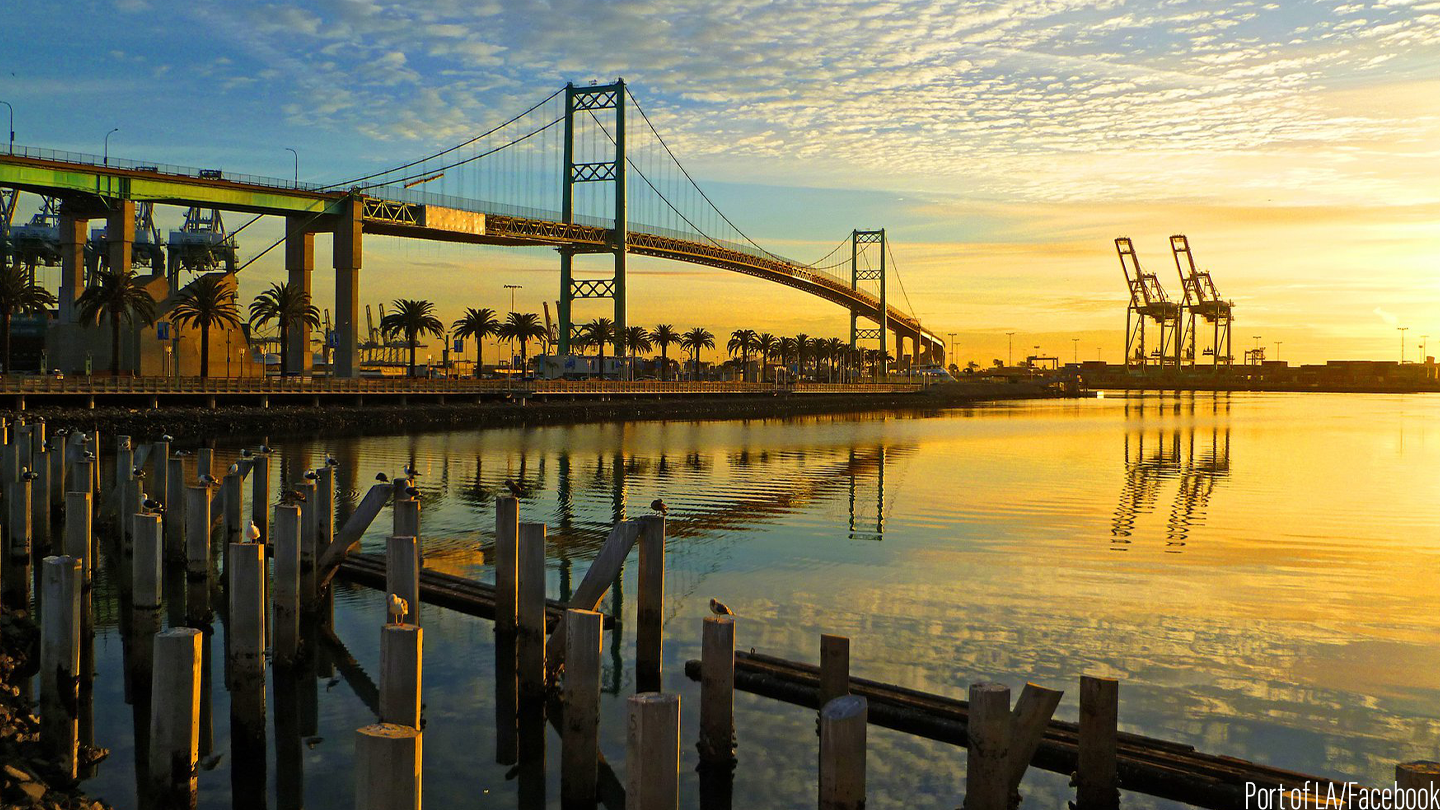 View Winners →
View Winners → 
he Port of Los Angeles announced its finalized cargo numbers for September, with over 903,865 20-foot equivalent units moved, making it the busiest September in the port’s 114-year history.
The port had announced preliminary numbers for September on Oct. 14.
“Despite the global supply chain challenges, the Port of Los Angeles and its partners continue to deliver record amounts of cargo,” said Gene Seroka, the port’s executive director. “This is made possible by the extraordinary effort of our longshore workers, truck drivers, terminal operators and so many others on the waterfront and in our region’s warehouses. I’m grateful to all of them.”

President Joe Biden announced on Oct. 13 that the port would begin operating 24 hours a day, seven days a week as part of a push from the White House to clear supply chain disruptions threatening the holiday shopping season and slowing the nation’s economic recovery from the coronavirus pandemic.
The announcement came after cargo ships had been anchored offshore from the Port of Los Angeles and the Port of Long Beach for weeks waiting to enter the facilities. On Wednesday, there were 70 ships waiting to get into one of the ports.
RELATED: Port of Los Angeles shatters Western Hemisphere shipping record

Major shippers and retailers, including Walmart, FedEx, UPS, Samsung, The Home Depot and Target, agreed to speed up operations to clear cargo out of the ports and free up more space on the docks.
The commitments announced Oct. 13 include:
- Walmart committing to increase its use of nighttime hours and increase throughput by as much as 50% over the next several weeks.
- UPS committing to an increased use of 24/7 operations and enhanced data-sharing with the ports, which would allow it to move up to 20% more containers from the ports.
- FedEx committing to combine an increase in nighttime hours with changes to trucking and rail use to increase the volume of containers it will move from the ports. The changes could result in doubling the volume of cargo moved out of the ports at night.
- Samsung committing to move nearly 60% more containers out of the ports by operating 24/7 through the next 90 days.
- The Home Depot committing to move up to 10% additional containers per week during newly available off-peak hours at the Port of Long Beach and Port of Los Angeles.
- Target moving about 50% of its containers at night, committing to increase that amount by 10% during the next 90 days to help ease congestion at the ports.
The two ports are responsible for about 40% of all imports into the United States. In September, the Port of Los Angeles’ imports reached 468,059 20-foot equivalent units, about the same as the previous year, according to port officials.

READ MORE: New Port of Los Angeles tool aims to predict shipping 6 months out
Imports, exports and empty container cargo volume for the year stands at about 8,176,917 20-foot equivalent units, 26% more than the same period of 2020.
“Of particular note is the great work by BNSF and Union Pacific, which have reduced the rail backlog in half in the last month and by two-thirds over the last two months,” Seroka said. “We’ve got more work to do but we’ve made significant progress due to the collaborative efforts with our Class 1 railroads.”
Seroka attributed the surge to greater consumer buying in the United States. Exports, however, have decreased, and in September, reached their lowest amount since 2002, with only 75,802 units exported through the port.








































































































